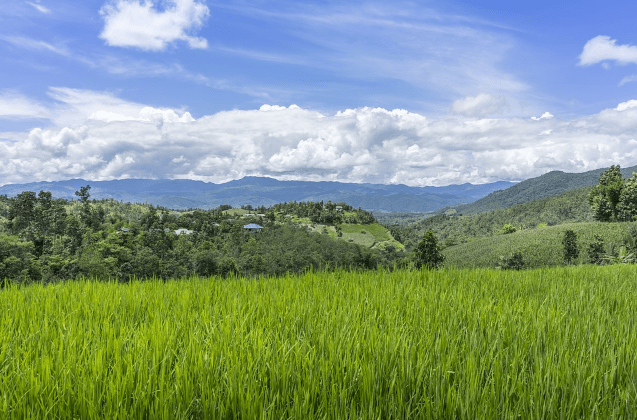 When looking at different ways to invest money, you’ve probably considered stocks, bonds, and mutual funds. What about Vacant Land? The simplicity and stability that comes with owning the right piece of land (purchased at the right price) can far outweigh the myriad of problems that comes with any other type of real estate. If you’ve overlooked vacant land as a viable investment opportunity in the past, you need to take a few minutes and get educated about what land is all about!
When looking at different ways to invest money, you’ve probably considered stocks, bonds, and mutual funds. What about Vacant Land? The simplicity and stability that comes with owning the right piece of land (purchased at the right price) can far outweigh the myriad of problems that comes with any other type of real estate. If you’ve overlooked vacant land as a viable investment opportunity in the past, you need to take a few minutes and get educated about what land is all about!
1: Vacant Land is EASY!
You don’t have to do anything to the property. Have you had enough of dealing with toilets, tenants, & termite? Vacant land doesn’t involve ANY of those things. Once you buy it… it sits there. No need for construction or renovations! You don’t need to be an expert or know anything about how to rehab a property yourself. Think about it, it’s tangible asset that doesn’t wear out, doesn’t depreciate, and nothing can get broken, stolen or destroyed.
2: Land is Inexpensive to Own as a Long-Term Investment.
When you buy a piece of vacant land there are no utility bills to pay, the cost of property insurance is nominal (if you have it at all) and property taxes are extremely cheap. If you want to park your cash somewhere and forget about it, vacant land could be exactly the investment vehicle you’re looking for.
3: They Aren’t Making Any More Of It.
Most people don’t think of vacant land this way, but the reality is – land is an extremely valuable resource with limited quantities available. Especially when you purchase land in a developing area, you will find yourself with a finite asset that a lot of other people want to get their hands on. If you go into this with the intent of holding the right property for the long-term, it can make a lot more sense (and be a lot more profitable) than other investment opportunities.
Some of the Pros:
- No tenants means less time commitment from the owner
- Renovations and repairs aren’t required
- Undeveloped land is less expensive than developed properties
- Value of land goes up over time (in most cases) because it’s a finite resource
- Flexibility to either resell property as raw land or develop and sell for a much larger price
- Financing future buyers allows owners to make more money
